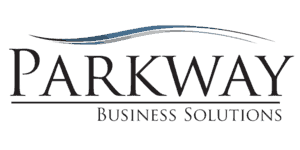1099 Vendor & Other Tax Considerations
I wanted to take a minute to educate business owners this morning on a few tax issues (such as 1099 vendor) that bookkeepers and accountants see all the time, but rarely do business owners remember, and worse there is a very short window where these concerns might actually be noticed and addressed timely.
First, and most importantly, are closing entries for the books. For many small businesses the tax preparer and bookkeeper are not the same person, and, often if the office person completing the daily books is not aware of the need for closing entries, they will never be completed. Some tax preparers and CPA’s are great about creating closing entries and forwarding these to the business owner for entry, but not all tax professionals do this. As a business owner, getting your closing entries into QuickBooks during tax time should be a priority. Why, because those entries provide significant accounting adjustment information about your company, generated by your tax professional, in many areas of your business. These can range from payroll, to assets, and many other areas of your accounting. So remember, get your closing entries into QuickBooks.
Second on our list is W9 information for subcontractors. Here at Parkway, we track 1099 subcontractors based on who we think will be a likely candidate as a 1099 vendor based on the IRS IS checklist. We then provide a report along with a 1099 vendor form to our clients so that they can collect W9 information for year end. The thing I have always found interesting about the 1099 vendor process is the due date for 1099 vendor information to the “Sub”. January 31st is traditionally the deadline for Form 1099 Misc. to be sent to the subcontractor, unless filling out boxes 8-14 in which case the deadline is February 16th in 2016. Granted I understand the deadline is meant to help people receive revenue information timely for the filing of taxes, but, that gives a business owner a 31 day window to generate 1099’s at one of the busiest times of their year. Thankfully our clients are getting data ahead of time, but the reason they are is because we dealt with this deadline without our monthly reports for many years, and it was not fun. QuickBooks 1099 vendor module can help, if it is laid out correctly by your accountant, but if that QuickBooks module has not been reviewed by you accountant in some time, it is time for a meeting.
Lastly, and somewhat locally biased to California, be sure to pay your annual statement of information fee to the secretary of state timely. We’ve seen clients bring us outrageous bills for late statement of information filing, prior to starting with us. If you the business owner ever want to see a $25.00 bill become a $450.00 bill, just sit on getting the statement of information payment done for a while. There are many things that can be done to bring this to your attention timely, one trick we use is to create a report specific to the Statement of Information transactions of prior years in QuickBooks Online with a special note to the client to remind them it is coming due, then automate the email to send out to the business owner in enough time for them to comfortably pay the fee.
There are many areas of the tax process a business owner should familiarize themselves with, and we always recommend getting to know your tax professional better with quarterly meetings, but for now hopefully these areas can help.




